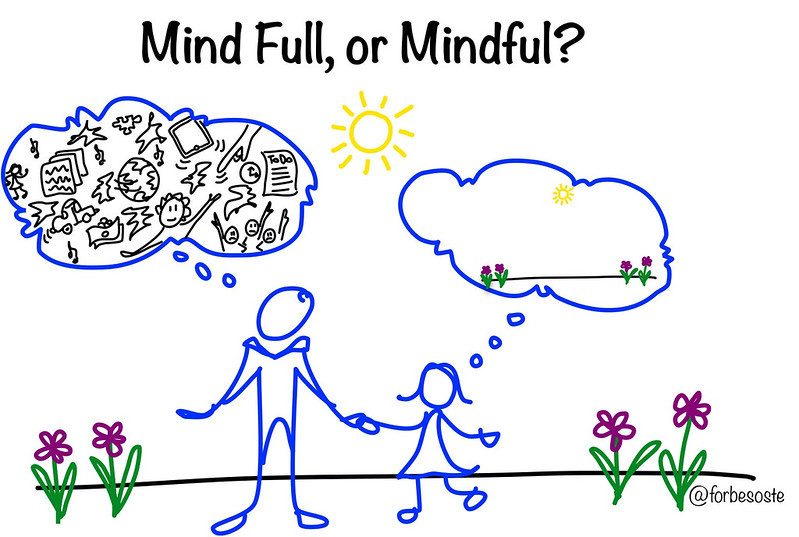
As most of us have been under quarantine for six weeks by now, mental health strains are particularly high. Today we are speaking to Simon Mckibbin, an expert on mindfulness, a practice that helps you connect with your body and your senses in order to create a clearer, calmer self. So first of all, talk about your own experiences with mindfulness. How did you get into it?
"I have been working with mindfulness since 1986. I was a wreck - clinically depressed, OCD, you name it I probably had it. I learned to meditate myself and found a community to be able to integrate mindfulness."
And for those who are unfamiliar with the term, what actually is mindfulness?
"Mindfulness is a quality of awareness and being. The word presence actually fits better for me. It’s a way of being which incorporates your sensing body, coming into our fullness. For example, here I am sat in my garden, connecting with the birds and the ground underneath me, and something comes alive in me that wasn’t before."
For many who are less familiar with mindfulness, there is an association between mindfulness and meditation. What is the difference between the two?
"Mindfulness is a quality of being that we can bring to any moment in the day. Meditation is the formal practice of that. It’s an invitation into your full humanity."
Do you think that mindfulness can be something that is useful for everyone in quarantine?
"Absolutely. People are being forced to meet parts of themselves they would normally keep at bay by distracting themselves. It’s highlighting that we often live in our heads, and there is no escape from the thinking mind in a way. There’s a whole vitality inviting our relationship that we do not normally connect with."
Do you think this is something everyone can connect with, with just some time, patience and focus?
"We need survival and thrival. Anyone can notice their feet on the ground, the sound of a bird, anyone can notice their breathing."
What is your base-level advice for someone who is just trying mindfulness out?
"What are my values? Perhaps you value connection. Kindness. Then you can start looking at how you can meet those needs. I have a soundcloud website, Simon Mckibbin Living Presence, and that has 750 meditations. You can explore some of those and pick up your skills."
Is meditation for everyone? And if it isn’t, can you still practise mindfulness without meditating?
"I would challenge the interpretation of meditation. Meditation is your natural self being naturally connected. Meditation is a natural correspondence and connection in the body. Once we can rest there, we can rest our attention anywhere. Mindfulness is already happening at all times, we are just seemingly disconnected at a thought level."
Are there any websites or online resources for those who are at home without instruction who want to get to know mindfulness practice?
"My new website is going up, living-presence.co.uk, will offer lots of resources to help you find your way forward into a natural form of meditation."
It’s quite common that the first time you try to meditate, you feel awkward and embarrassed. Is this normal?
"These are normal responses because it is a challenge to the status quo. Something in you is trying to look after you, and you are inviting forward movement and fresh edges to come in your life."
Talk about the importance of patience with mindfulness. Is there a timeframe within which people may notice a difference?
"Research shows that within eight weeks of mindfulness practice, there are changes in the outer cerebellum. We are going for effect, not affect. We don’t do it to feel good, but to bring a transformation, and that is the effect. You will become more whole, more present, and you will feel generally happier."
And something to continue beyond quarantine.
"It is a generative practice. You develop resilience, creativity, so that some of the problems that would have arisen don’t arise. You wouldn’t jump out of a plane while still stitching your parachute."
Would you recommend mindfulness now more than ever given the crisis?
"Absolutely. What is going on is highlighting our disconnection from each other, from our work, from nature, from ourselves. Mindfulness is a strategy to connect. What we need to do is learn how to connect, and have a relationship with our feeling."